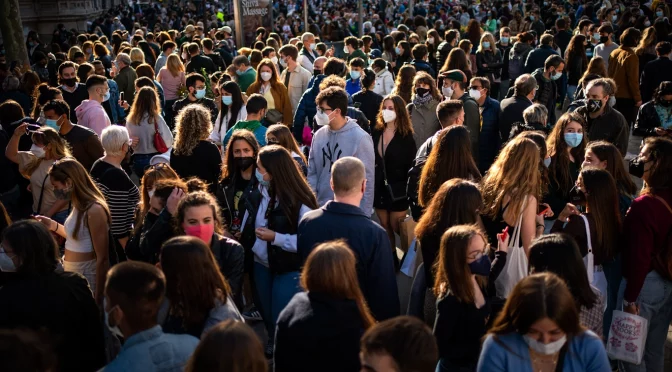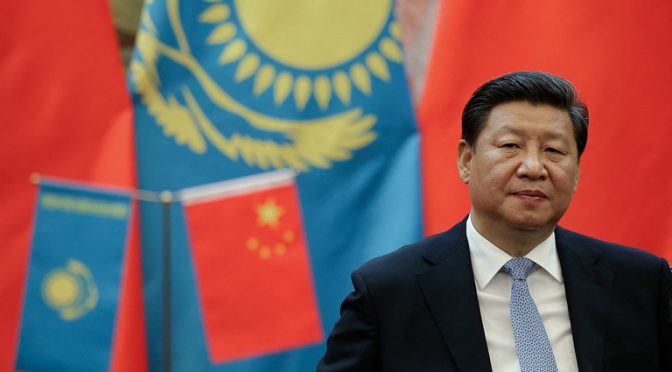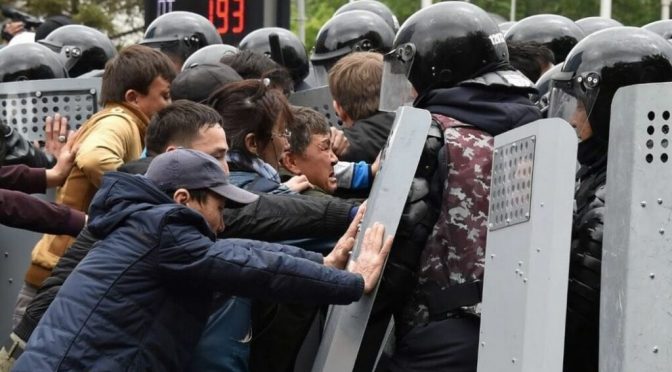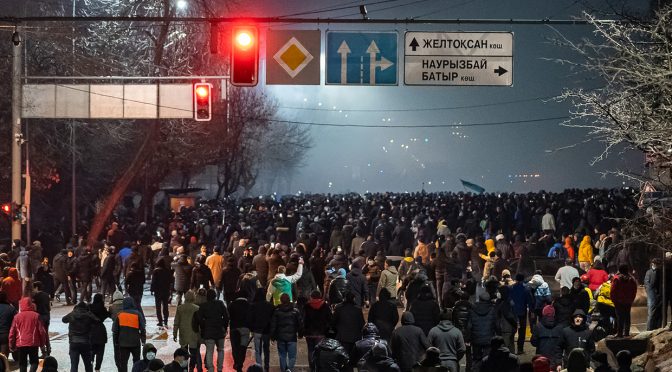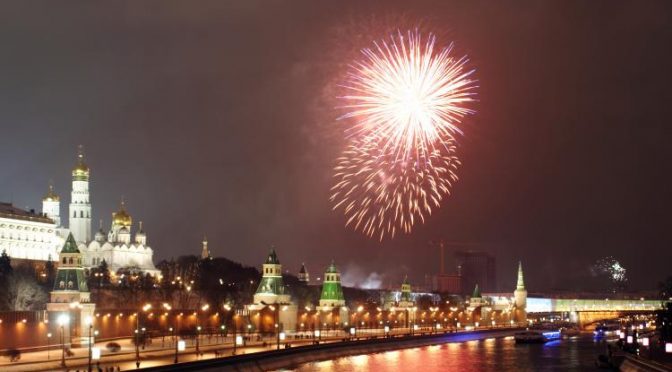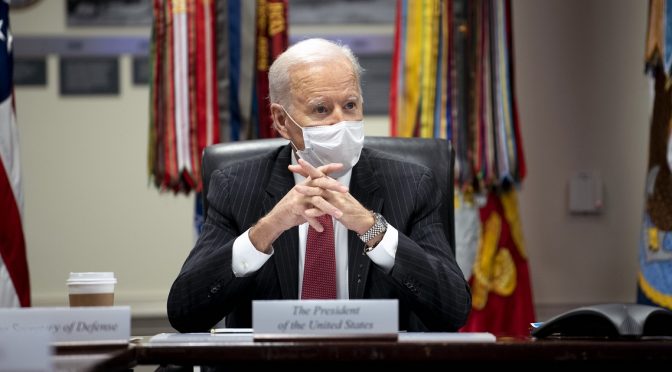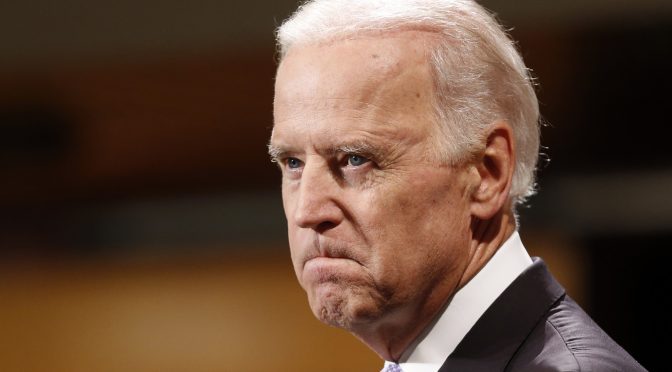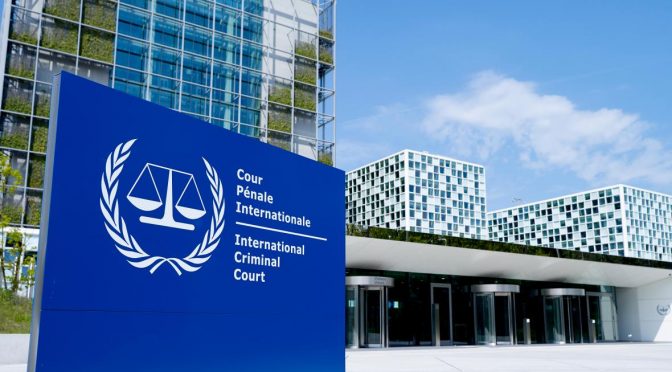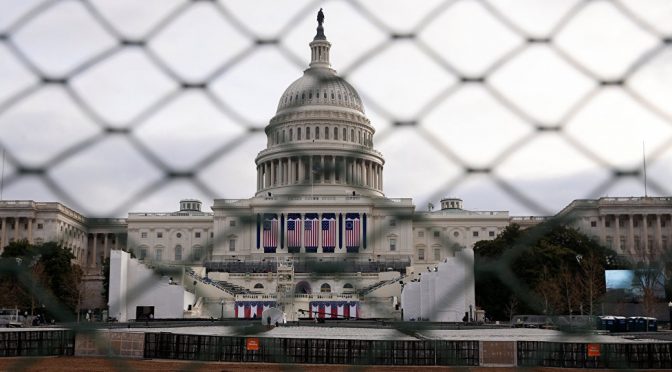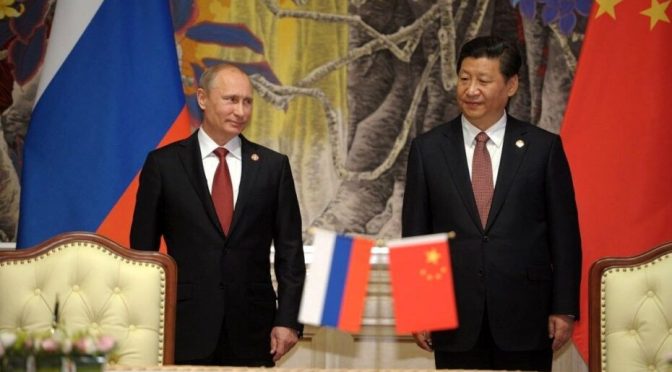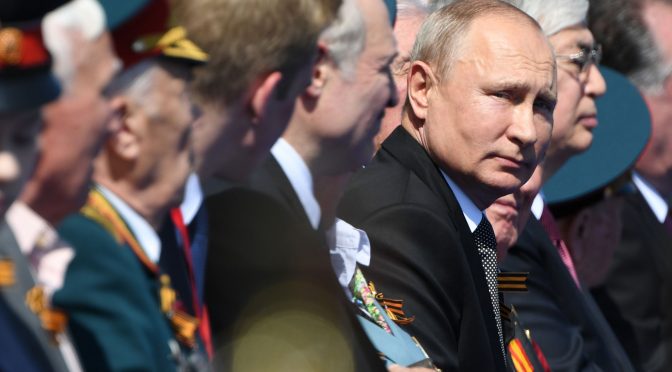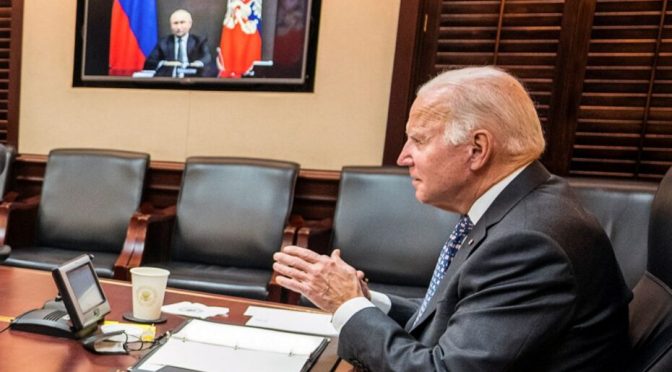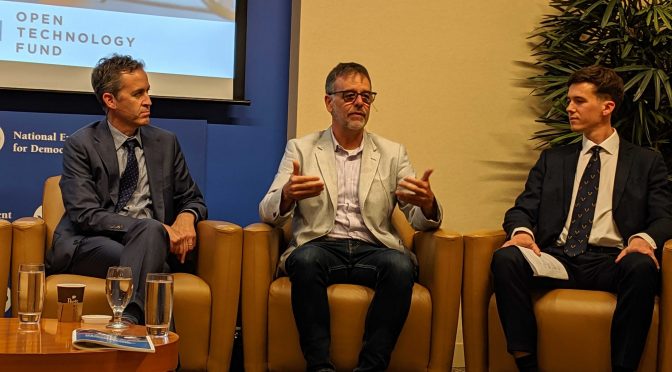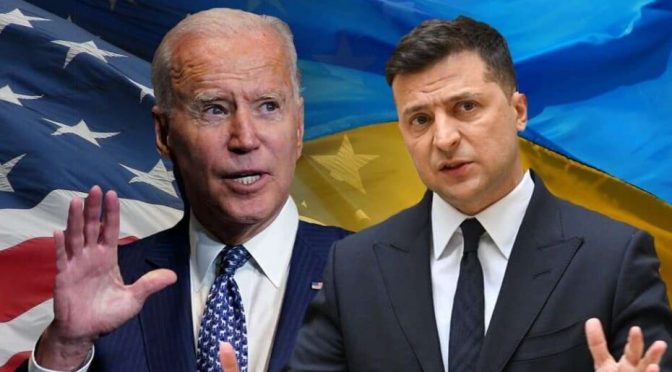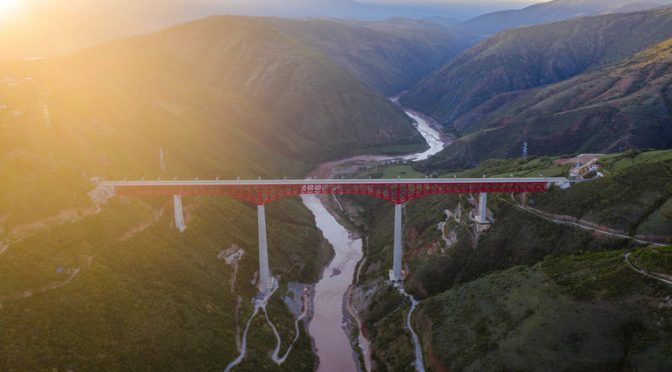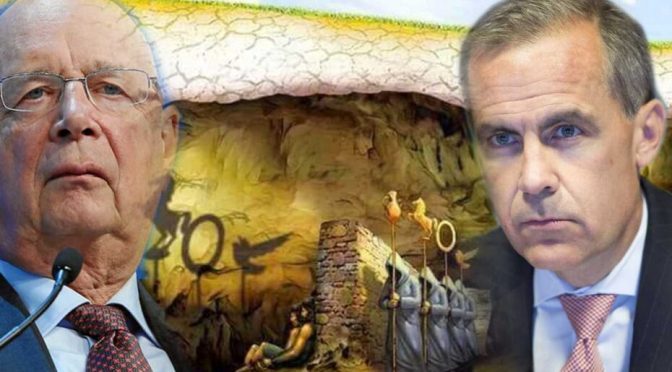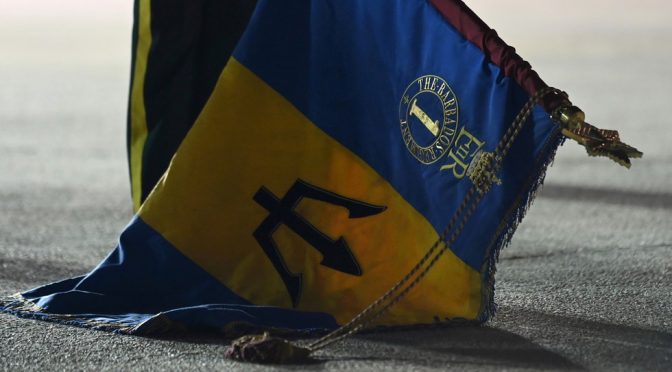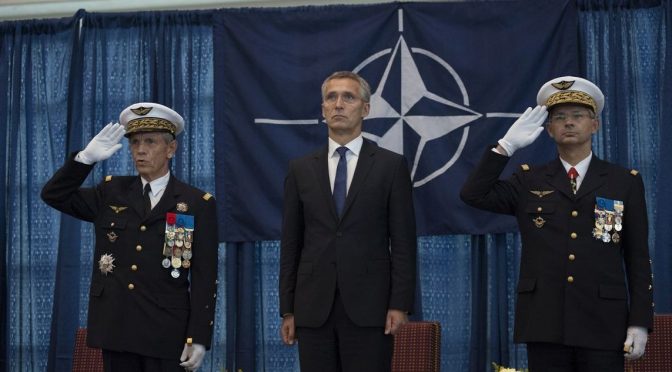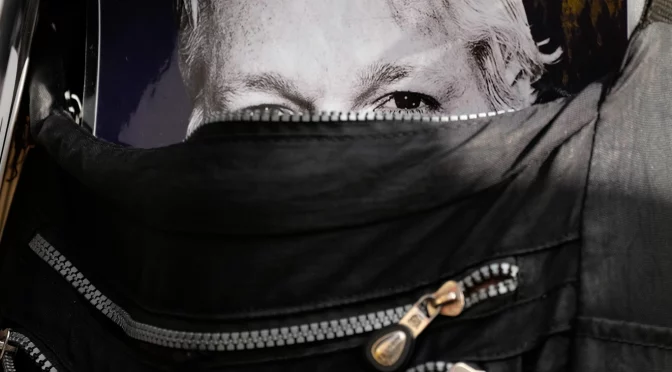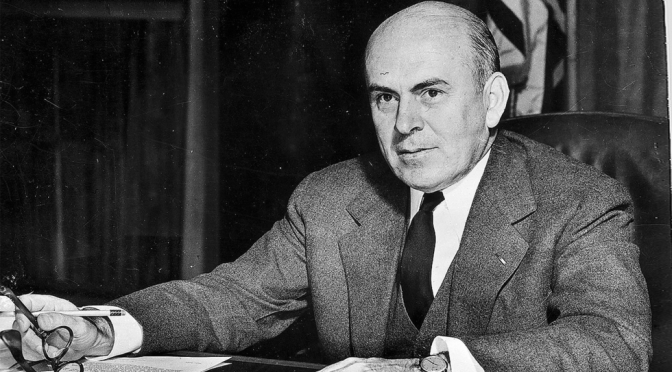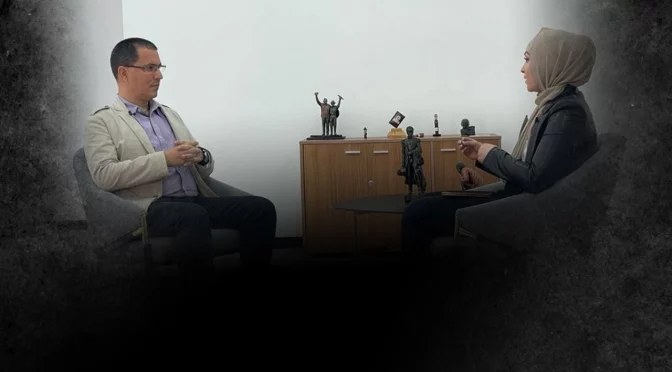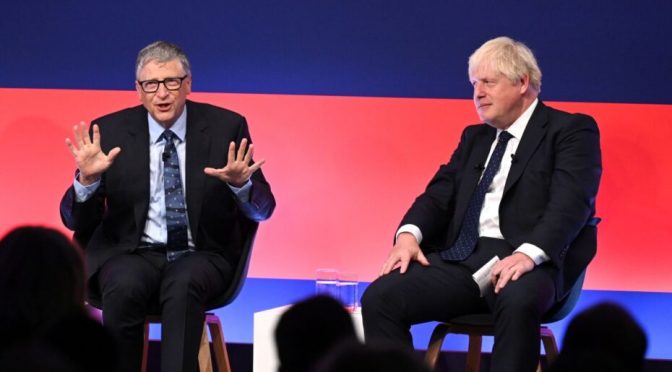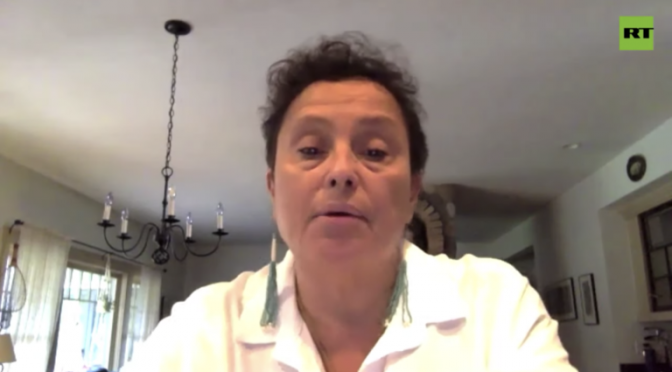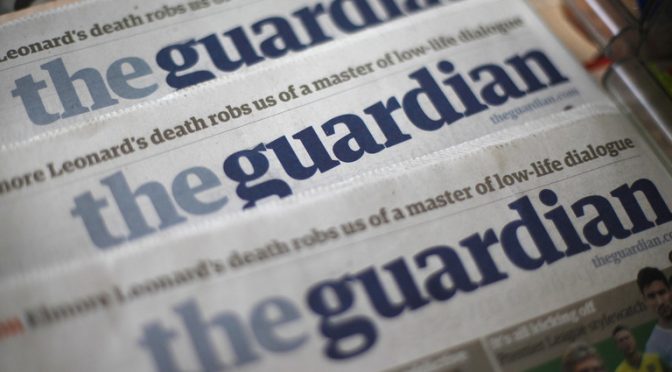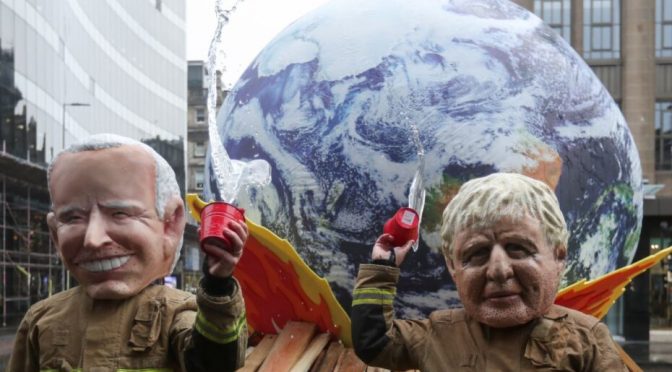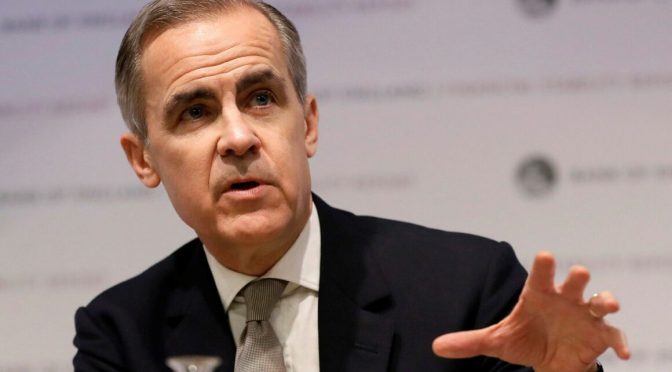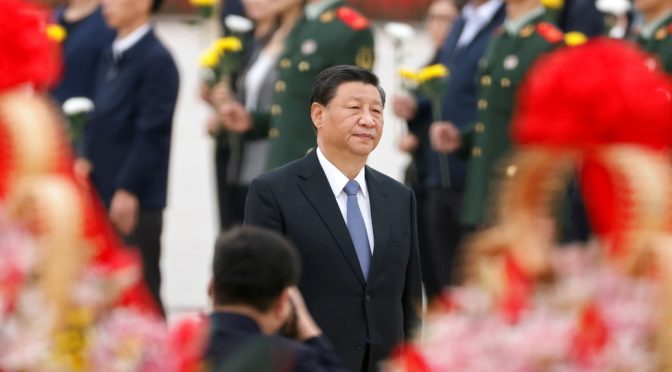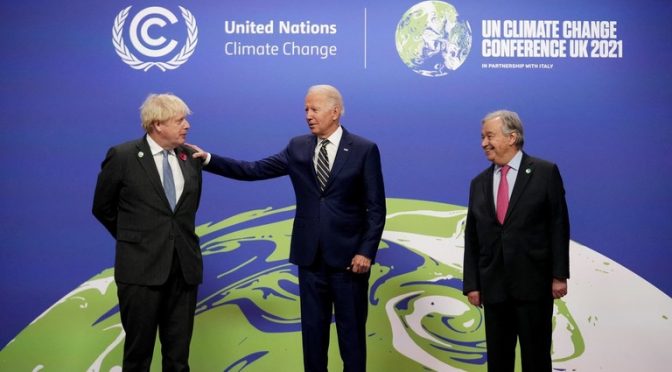In November, a huge underground naval fuel storage facility at Red Hill near Honolulu burst, leaking 14,000 gallons of jet fuel, contaminating the water supply, poisoning scores of people and driving thousands of Hawaiian families from their homes.
Continue reading The Red Hill Disaster: Two Centuries of ColonialismAll posts by Geopolitics101
Bastille 2022: Building a Worldwide Movement Against “Corona Tyranny”
What is presented in this article is a preliminary draft: suggested concepts and ideas pertaining to the formulation of a Worldwide People’s Movement vs. the “Unelected Corona Public-Private Partnership”.
Continue reading Bastille 2022: Building a Worldwide Movement Against “Corona Tyranny”The Roadmap Towards a Worldwide Financial Crash, Inflation, Digitization
Omicron, a so-called covid-variant, has never been isolated. Whatever the current narrative – 193 UN member governments tell you in lockstep, what the mainstream media tell you in lockstep – and what the majority in the street of the 193 betrayed UN member countries believe in lockstep – is a Big Lie.
Continue reading The Roadmap Towards a Worldwide Financial Crash, Inflation, DigitizationThe President Who Can’t Resist Defying the US is Inaugurated for the 4th Term
I’ve just attended the latest inauguration of Sandinista leader Daniel Ortega as Nicaraguan president and found him in a bullish mood, relishing his country’s improved ties with China and critical of American hypocrisy.
Continue reading The President Who Can’t Resist Defying the US is Inaugurated for the 4th TermXi Assures Support to Kazakh President vs. “Foreign Interference”
Beijing’s policy of ‘non-interference’ in other countries has been tested by events in Kazakhstan, with Xi Jinping openly supporting the government. It’s a sign of things to come, further straining relations with the US.
Continue reading Xi Assures Support to Kazakh President vs. “Foreign Interference”Steppe on Fire: Kazakhstan’s Color Revolution
Kazakhstan was rocked into chaos virtually overnight, in principle, because of the doubling of prices for liquefied gas, which reached the (Russian) equivalent of 20 rubles per liter (compare it to an average of 30 rubles in Russia itself).
Continue reading Steppe on Fire: Kazakhstan’s Color RevolutionKazakhstan Intervention Sees Russia Set A New Precedent
The sudden outbreak of violence in Kazakhstan has taken analysts and international observers by surprise. Now, the decision to deploy a regional peacekeeping force has become the latest major milestone for the post-Soviet space.
Continue reading Kazakhstan Intervention Sees Russia Set A New PrecedentLina Hidalgo: From Democratic Party Nursery to Omicron Hysteria Queen
Despite her image as a progressive and political outsider, Harris County Judge Lina Hidalgo is the ultimate insider and works with billionaires to crush the working class and poor, and usher in a new technocratic biosecurity state.
Continue reading Lina Hidalgo: From Democratic Party Nursery to Omicron Hysteria QueenWhen People are Anxious, Isolated and Hopeless, They’re Less Ready To Think Critically
The corporate media is not our friend. Its coverage of the pandemic is not there to promote the public good. It is there to feed our anxieties, keep us coming back for more, and monetize that distress. The only cure for this sickness? A lot more critical thinking.
Continue reading When People are Anxious, Isolated and Hopeless, They’re Less Ready To Think CriticallyJanuary 2022: A Game Changing Moment Between Russia, America and the World
What Moscow is really asking for is to redraw the borders of influence between Russia and the West.
Continue reading January 2022: A Game Changing Moment Between Russia, America and the WorldIt’s Time to Prepare for The Post-American Age
Washington’s role in the world is diminishing. What comes next?
Continue reading It’s Time to Prepare for The Post-American AgeThe Government Has Designated the Enemy, and It’s Us
According to President Biden, “a winter of death” awaits anyone who rejects the experimental COVID jab which, by the way, has been consistently shown to do far more harm than good.
Continue reading The Government Has Designated the Enemy, and It’s UsAmerica’s Malaise and its ‘Failure of National Purpose’ – ‘Things Are Not Getting Better’
Does Biden have a choice? Can he acquiesce to a negotiated settlement with all three of America’s self-defined adversaries: Russia, China and Iran?
Continue reading America’s Malaise and its ‘Failure of National Purpose’ – ‘Things Are Not Getting Better’Pharma, Gates, Fauci, UK Officials Accused of Crimes against Humanity at the ICC
Activists are charging UK officials and the world’s most powerful health figures with genocide, citing a range of statistics on the effects of COVID “vaccines” and policies.
Continue reading Pharma, Gates, Fauci, UK Officials Accused of Crimes against Humanity at the ICCCheckmate: Iran Is Spearheading a Geopolitical Sea Change in West Asia
Benjamin Franklin once famously wrote to his fellow colonials: “Either we hang together or we hang separately.”
Continue reading Checkmate: Iran Is Spearheading a Geopolitical Sea Change in West Asia$11 Trillion U.S. Fiscal & Monetary Spending, A Colossal Theft in Plain Sight
What have we done with the $11 Trillion?
Continue reading $11 Trillion U.S. Fiscal & Monetary Spending, A Colossal Theft in Plain SightA Mass-Murdering Regime Dares to Lecture the World on Human Rights
Washington is a criminal regime as its illegal wars and deliberate mass murder demonstrate beyond any doubt.
Continue reading A Mass-Murdering Regime Dares to Lecture the World on Human RightsAre Sino-Russian Relations Really the ‘Best in History’?
They are certainly positive and can be like a breath of fresh air compared to the eternal stench from the swamp Washington has been sinking into.
Continue reading Are Sino-Russian Relations Really the ‘Best in History’?Meet the Elites of Northern Europe, NATO’s Hardcore Militant
The sun has been rising from the North for quite some time on the NATO land. Since mid-2009, the chair of NATO secretary general has been occupied by Northern Europe’s politicians: first the former Danish PM Anders Fogh Rasmussen and then (since October 2014) the former Norwegian PM Jens Stoltenberg. Brussels extended Stoltenberg’s contract to September 2022. The not so far deadline is already prompting the first discussions among the Atlantic partners.
Continue reading Meet the Elites of Northern Europe, NATO’s Hardcore MilitantExit Nord Stream 2, Enter Power of Siberia 2
Military superpower Russia, having had enough of U.S./NATO bullying, is now dictating the terms of a new arrangement.
Continue reading Exit Nord Stream 2, Enter Power of Siberia 2Rising Food Prices Could Spark Famine, War, and Revolution in 2022
The political consequences of hunger are profound and unpredictable but could be the spark that lights a powder keg of anger and resentment that would make the 2020 Black Lives Matter protests look tame by comparison.
Continue reading Rising Food Prices Could Spark Famine, War, and Revolution in 2022Never a More Unsettling Strategic Landscape
It is the first time that others are dictating to the West rather than being instructed on how to conform to American red lines.
Continue reading Never a More Unsettling Strategic LandscapePfizer “Confidential Document” Concedes There is a Large Increase in Adverse Event Reactions to Its Vaccine
Up until now, New Zealand GPs and hospitals have been provided with a fact sheet from Pfizer listing 21 possible adverse events as a result of vaccination.
Continue reading Pfizer “Confidential Document” Concedes There is a Large Increase in Adverse Event Reactions to Its VaccinePfizer Recorded Nearly 160,000 Adverse Reactions to Its Covid-19 Vaccine
Documents released by the Food and Drug Administration (FDA) reveal that drugmaker Pfizer recorded nearly 160,000 adverse reactions to its Covid-19 vaccine in the initial months of its rollout.
Continue reading Pfizer Recorded Nearly 160,000 Adverse Reactions to Its Covid-19 Vaccine“Independent” Internet Freedom Organization is Staffed Full of Spies
While the OTF presents itself as independent internet freedom activists, their funding, staff, history and choice of targets all point to the conclusion that they are a digital weapon being used against Washington’s enemies.
Continue reading “Independent” Internet Freedom Organization is Staffed Full of SpiesUS Shouldn’t Be Invited to Summit for Democracy, Let Alone Be Its Host
In every one of the countries the United States has intervened in over the past decades, anti-democratic means are almost always used towards anti-democratic ends, all in the name of promoting democracy.
Continue reading US Shouldn’t Be Invited to Summit for Democracy, Let Alone Be Its HostU.S.-Ukraine Plan Emerges… Make Another Afghan Quagmire for Russia
U.S. President Joe Biden and his top aides continue to assert that Russia is building up forces to attack its western neighbor.
Continue reading U.S.-Ukraine Plan Emerges… Make Another Afghan Quagmire for RussiaNATO Takes Another Beating as EU Adopts Controversial Paper Which Undermines It
A sort-of EU army is in the making, or at least on paper in Brussels. It’s radical in that it would probably not involve Germany so therefore leaving France at the helm. But who’s going to pay for it?
Continue reading NATO Takes Another Beating as EU Adopts Controversial Paper Which Undermines ItFDA & CDC Ignore Damning Report 90+% of Hospital’s Admissions were Vaccinated for Covid-19
A concerned Physician Assistant, Deborah Conrad, convinced her hospital to carefully track the Covid-19 vaccination status of every patient admitted to her hospital. The result is shocking.
Continue reading FDA & CDC Ignore Damning Report 90+% of Hospital’s Admissions were Vaccinated for Covid-19‘The country that bombed you is your friend. The one that built your new railway is your enemy’
This is the Western media’s bizarre messaging to the people of Laos, a nation that was carpet bombed by America, and which is now being vilified for accepting a new $9 billion railway line paid for by China.
Thursday was National Day in Laos, a celebration marking 46 years since the landlocked Southeast Asian nation deposed its monarchy and became a revolutionary communist state, an effort which was supported by Vietnam.
This year, the anniversary had added significance, as it saw the opening of a major new project, an electrified high-speed and freight railway system connecting the capital city, Vientiane with its northern neighbour, China.
The $9 billion project is part of the Belt and Road Initiative, and has been hailed as one of its flagship achievements. It is the first commercial and industrial railway in Laos, which, given its geography and the fact it is surrounded by mountainous terrain, has not previously had many options to expand its exports and generate economic growth.
Now, though, it has a direct rapid link into the world’s second largest economy and the world’s largest consumer market by population, and a connection to the booming ports of Guangdong. In terms of what it will bring to Laos, it is a game changer. So, what’s not to like about it?
To nobody’s surprise, the mainstream media have responded to the railway with the usual anti-China negativity. A plethora of articles sought to paint the project as a ‘debt trap’, promoting the accusation that Beijing loans countries money for projects they cannot afford and then exerts political leverage over it.
The Financial Times, for one, ran with a cynical article headlined ‘Laos to open Chinese-built railway amid fears of Beijing’s influence’. It implied that somehow Laos feels threatened or fears the construction of this very pioneering railway project (which the country’s own leader made sure he was the first to travel on). This suggestion of ‘fears of Chinese influence’ has become a common feature on such stories, which seek to cast doubt over anything positive China may be achieving or doing.
A common Twitter meme among pro-China users which has followed from stories like this asks: “but at what cost?” highlighting the frequency of such negative coverage.
And if you Google “China, but at what cost?” you can find a great many examples of articles published in major outlets. In producing such pieces, the broader intention is to depict Beijing’s actions as unwanted, threatening and constantly facing opposition. In the case of the Laos railway project, the ‘problem’ is it was financed by debt, and therefore it is not a positive step.
Yet this argument is as insulting as it is outright insensitive to Laos’ contemporary history. Anyone who knows anything about Laos’ relatively recent past will be well aware that China is not the country to fear, but the United States – the nation that dropped over 260 million cluster bombs on Laos and completely devastated the country as an extension of the Vietnam War, making it the most single bombed nation in history and claiming over 50,000 lives.
Many of these bombs remain unexploded and litter the countryside of Laos, continuing to kill civilians. In constructing the new railway, workers first had to clear the unexploded ordnance. How is it that the world and the mainstream media remain indifferent to this atrocity? And how, by any stretch of the imagination, can they claim that China is the true threat to Laos, and that the US and its allies act in the true interests of the country?
Herein lies the problem. Such a mindset symbolizes the elitism, chauvinism and self-righteousness of the countries of the West, which are ideologically inclined to believe that they stand for the ‘true interests’ of the ordinary people in the countries they profess to liberate.
Western politics peddles the assumption that through countries’ adherence to liberal democracy, they exclusively hold a single, universal, impartial and moralistic truth, derived from the ontological legacy of Christianity, and they have an obligation to introduce it to others. The West always acts truthfully and in good faith, while its enemies do not. And therefore, so the logic goes, any policy the US or its allies direct towards Laos is motivated by sincere intent and goodwill for its interests, and in turn, anything that China does is bad-faith, expansionist and power-hungry behaviour motivated by a desire to influence or control the country.
This creates the bizarre scenario whereby Beijing is depicted as evil and sinister for building a railway to connect to its neighbour – but we should forget America dropping millions of bombs on the country because it was done in the name of ‘freedom’. I’m sure you can imagine how the media would react if China did the latter.
Those who push this narrative predictably omit any insight into how Laos itself thinks about the situation. Another piece which took a similar stance, published in The Diplomat, was titled ‘Laos-China Railway inaugurated amid mounting debt concerns’.
But like the ‘fears of Beijing influence’ expressed in the FT, who are these ‘concerns’ from? The report cites the “Washington-based Center for Global Development” and what it merely describes as a “US based analyst” as sources who push the ‘debt trap’ narrative. But nowhere in any of these articles is there an actual voice direct from Laos who raises any fear of China, or objects to the railway’s existence.
Instead, they simply talk on the country’s behalf, obscuring the reality that a communist state which suffered from extreme levels of aggression from the US probably does not see its northern neighbour – and its most important economic partner – as a threat to its regime. With many more articles running variations of the same theme, there is minimal effort given to the consideration that the railway will help the country rapidly expand its exports, sustain greater growth and help Laos pay for the project.
The Laos-China railway has provided a textbook example of how the media can distort a story in order to fortify an incriminating narrative, while brushing aside brutal realities. We are shown a lopsided world, where the travesty of a country being bombed into oblivion with consequences lasting decades is ignored, and the preference is to try to convince us how that same country’s first commercial railway line is, in fact, what it should really be scared of.
It is a demonstration of how the power of the English-language, pro-US media distorts reality itself and how they can blow up an issue, yet hide the truth, by professing to care dearly about the well-being and interests of a country which the West poured death, destruction and carnage upon in the name of freedom.
Latest Resolution Illustrates UNGA’s Complicity With Israel’s Colonial Expansion
Yet another non-binding UN General Assembly has passed, granting Palestinians permanent sovereignty over their natural resources, even as Israel has absolute dominion over their territory.
Continue reading Latest Resolution Illustrates UNGA’s Complicity With Israel’s Colonial ExpansionThe Underpinnings of Venezuelan Election & Huge Maduro/Socialist Victory
Sunday’s result underscores the notion that the Venezuelan people blame the U.S. sanctions for their suffering, rather than purely pointing the finger at the government.
Continue reading The Underpinnings of Venezuelan Election & Huge Maduro/Socialist VictoryKlaus’ Great Narrative: Locking the Plebs Into Plato’s Cave for the 21st Century
Unfortunately for the Davos Guardians, the reality of the New Great Narrative is a world devoid of those very principles that humanity requires to survive and thrive within our creative, reasonable universe.
Continue reading Klaus’ Great Narrative: Locking the Plebs Into Plato’s Cave for the 21st CenturyBarbados Ditches the Queen
If you believe the narrative being pushed in the UK media, there’s a predictable source to blame for Barbados going it alone as a republic. This speaks volumes about the UK’s uncertainty over its place in the shifting world order.
Continue reading Barbados Ditches the QueenThe NATOstan Clown Show
The charade has come to a point that – diplomatically – is quite unprecedented: Foreign Minister Sergey Lavrov lost his Taoist patience.
Continue reading The NATOstan Clown Show“A Lot of Mistakes”: The Guardian and Julian Assange
Three years on from the explosive Julian Assange/Paul Manafort story, we question whether the Guardian has honored its stated commitment to the truth.
Continue reading “A Lot of Mistakes”: The Guardian and Julian AssangeThe Pro-Nazi US Official Who Helped Shape Post-War Germany
Newly declassified FBI files have shed significant light on the Nazi sympathies of John McCloy, the US assistant secretary of war during World War II, revealing a depth to the relationship that was not previously known.
Continue reading The Pro-Nazi US Official Who Helped Shape Post-War GermanyVenezuela Recovering from Sanctions in New Post-Petro Economic Plan
“I think our oil industry is going to grow and be maybe even more important than it was before, because now we know how to do many things by ourselves that we thought that we couldn’t. And the sanctions helped us in that sense.” — Jorge Arreaza, Venezuelan Minister of Basic Industries
Continue reading Venezuela Recovering from Sanctions in New Post-Petro Economic Plan‘Ideological Fanaticism’: The Folly of Seeing Human Systems as Hardware
The ‘meme-politics of lockdown and vaccine mandates’ may be fading, but the inflation meme and the economic aftermath meme has only just begun.
Continue reading ‘Ideological Fanaticism’: The Folly of Seeing Human Systems as Hardware‘I wish my tribal ancestors had not helped the Pilgrims survive their first year’
It’s unlikely the Pilgrims would have survived without the help of the Wampanoag in 1621. Now one ancestor of the Indigenous tribe tells RT of her regret at the assistance given, and of the problems her people continue to face.
Continue reading ‘I wish my tribal ancestors had not helped the Pilgrims survive their first year’How Bill Gates Bankrolls The Guardian that Claims Not Backed by Billionaires
It likes to tap its readers for donations by claiming it’s funded by them, not the mega-wealthy. But, in reality, billionaires have forked out millions to support the UK’s premier right-on, left-of-centre newspaper.
Continue reading How Bill Gates Bankrolls The Guardian that Claims Not Backed by BillionairesDavos Billionaires Want to Save the Planet… Why Don’t Developing Countries Trust Them?
For the time being, the world’s developing sector is generally not going to accept being sacrificed on the altar of a new Gaia cult managed by a priesthood of Davos billionaires.
Continue reading Davos Billionaires Want to Save the Planet… Why Don’t Developing Countries Trust Them?Revolutionary Front Seizes Haiti’s Largest Fuel Terminal as US Weighs Military Intervention
Jimmy Cherizier and the FRG9 have taken control of Haiti’s most important shipping terminal, demanding the resignation and trial of Acting Prime Minister Ariel Henry. While the Biden administration is reluctant to intervene, the Beltway establishment is ramping up the pressure.
Continue reading Revolutionary Front Seizes Haiti’s Largest Fuel Terminal as US Weighs Military InterventionUN-Backed Banker Alliance Announces “Green” Plan to Transform the Global Financial System
The most powerful private financial interests in the world, under the cover of COP26, have developed a plan to transform the global financial system by fusing with institutions like the World Bank and using them to further erode national sovereignty in the developing world.
Continue reading UN-Backed Banker Alliance Announces “Green” Plan to Transform the Global Financial SystemIs Belarus Waging A ‘Hybrid War’ On the West?
As the sound of flashbangs echoes out over the Polish-Belarusian border amid a worsening migrant crisis, a new buzzword is all over the political vocabulary – hybrid warfare. While the term is old, it has taken on a new dynamic.
Continue reading Is Belarus Waging A ‘Hybrid War’ On the West?Another Housing Crisis in America Is Coming
There is now an unprecedented spike in housing costs while COVID-19 has driven down the wealth of the average American.
Continue reading Another Housing Crisis in America Is ComingLeader for Life: What Xi Jinping’s Elevation Means for China and The World
Now anointed with the same status afforded to Mao and Deng, Xi has the opportunity to usher in a new era that will complete his vision for the rejuvenation of China while dealing with the threat posed by America.
Continue reading Leader for Life: What Xi Jinping’s Elevation Means for China and The WorldEU Weaponizes Belarus Border, Blaming Minsk and Moscow
Brussels is shirking its legal obligations in order to avoid internal tensions with populist opposition to capitalist corporate-controlled Europe.
European Commission President Ursula von der Leyen has made a stark accusation against Belarus and Russia, claiming they are weaponizing the migration problem on the border with Poland. This is a cowardly move to divert blame. It is also recklessly escalating confrontation.
Speaking to media after a White House meeting with U.S. President Joe Biden, the top European Union official said the task at hand was about “protecting our democracies” from “cynical hybrid warfare”. She explicitly accused Belarus of weaponizing migration and destabilizing the EU.
Von der Leyen did not mention Russia by name but her comments implied Moscow was colluding with its neighbor and ally to create geopolitical tensions by facilitating an influx of migrants into Poland, Lithuania and Latvia. She also cited unproven previous allegations of election interference and cyberattacks attributed to Russia as precedents for the current “hybrid warfare” with migration.
Other EU leaders have been more openly provocative. Polish Prime Minister Mateusz Morawiecki this week claimed that Russian President Vladimir Putin was “masterminding” a plot in cahoots with Belarus to flood the EU with migrants. This is a rehash of an old claim dating back to 2015 when more than one million refugees entered the EU. That mass movement was claimed then to be “hybrid warfare” orchestrated by Putin to wreak havoc in the bloc.
Such a claim is based on irrational Russophobia that does not stand up with facts, then or now.
Most of the refugees stranded at the Belarus borders with Poland and the Baltic states are from Syria, Iraq and Afghanistan. This was the same as in 2015. The common denominator is that these three source countries have been subjected to war and aggression by the United States and its European NATO allies over two decades. That is the root of the phenomenal migration to Europe. One can also factor in the NATO destruction of Libya in 2011 as another gateway for mass migration.
The EU is weaponizing the issue by distorting the cause: alleging that it is Russia and Belarus creating the human tide when in fact it has been illegal imperialist wars and regime-change operations conducted by the United States and the Europeans.
It is Poland and EU members that are deploying thousands of troops, tanks and barbed wire along the border with Belarus. This is an abomination of supposed “European values” and respect for international laws of asylum. The fiasco of Brussels financially supporting the construction of barbed wire fences is an international disgrace. Pointedly, this rush to ring-fence Europe comes exactly 32 years after the fall of the Berlin Wall.
Filippo Grandi, the United Nations Commissioner for Refugees, this week condemned the EU’s xenophobic, militarized response to people seeking asylum.
The heavy-handed EU response is way out of proportion to the actual numbers involved. It is estimated that some 8,000 people have crossed over the Belarusian border into the European Union this year.
In 2015, the influx of an estimated one million refugees into Europe from U.S.-led wars in North Africa, the Middle East and Central Asia provoked an existential political crisis for the European Union. Eastern European member states like Poland and Hungary refused to share quotas for resettling asylum seekers. Germany took on a disproportionate share under Chancellor Angela Merkel’s “open door” policy. That policy had huge negative repercussions for the entire bloc.
It led to bitter tensions between member states and within states. The rise of populist anti-EU political parties was largely driven by a perception of foreign migrants inundating societies.
The EU desperately wants to avoid a repetition of that internal political crisis. Thus it is moving swiftly to make Poland and the Baltic states the “line of defense”. This explains the sudden militarization of border controls with Belarus.
The EU is drawing up another round of economic sanctions against Belarus next week, accusing its President Alexander Lukashenko of “gangsterism” and “human trafficking”. The possible imposition of sanctions on Russian airlines is also being mulled on the back of allegations that Moscow is colluding with Minsk in pushing migrants towards the EU. This is a reckless escalation of tensions.
Russia has flatly rejected any such allegations. Moscow says the EU needs to talk directly with Minsk to resolve the problem. One idea proposed by the Kremlin is for Brussels to provide financial aid to Belarus to implement a rational system of asylum application and resettlement. But the suspicion is that that is the last thing the EU wants to do. It simply wants to block any migration to avoid internal political strife. To do that, it needs to blockade Belarus. That blockade is having a deleterious impact on the economy of Belarus from normal border crossings for trade and haulage being stymied.
The underlying problem also goes back partly to the EU’s hostile policy towards Belarus. Brussels has controversially interfered in Belarus, along with the United States, in claiming that its presidential election last year was a sham. The EU refuses to recognize the re-election of Lukashenko and has slapped several rounds of sanctions on the country while claiming that an exiled opposition candidate is the real winner.
The Belarus government says it can’t afford to accommodate refugees coming through its territory en route to their desired destination of the European Union. Given the background hostility of the EU towards Belarus, it is understandable if Minsk is not exactly overseeing border controls. It’s a kind of “screw you” gesture to the European bloc for its interference in Belarus’ political affairs. Von der Leyen and other officials are going further by claiming that Minsk is deliberately organizing flights of refugees from various Middle Eastern countries, including Egypt, Jordan, United Arab Emirates.
Under international law, the EU is obliged to receive asylum seekers. The European governments have created millions of displaced people from their criminal wars and machinations along with the United States. But Brussels is shirking its legal obligations in order to avoid internal tensions with member states over immigration and populist opposition to capitalist corporate-controlled Europe. But by weaponizing the matter, the EU is recklessly winding up tensions with Belarus and Russia. The culprit is Europe’s moral and political cowardice to live up to its responsibilities by seeking to shift the blame on to others.
‘I’m a doctor and I fear we will never regain the public’s trust after Covid’
One undeniable outcome of the pandemic is that the public’s faith in scientific and medical authorities is perhaps at its lowest point in living memory – and no objective observer can truly be surprised.
At the beginning of the Covid-19 pandemic, the US President’s Chief Medical Adviser Dr Anthony Fauci and US Surgeon General Dr Jerome Adams told us not to wear masks, until they instructed us to wear one everywhere we went.
The Covid vaccines were declared to be effective at preventing the spread of disease, until breakthrough cases around the globe proved that wasn’t so, and that effectiveness was downgraded to “against hospitalization and death.”
Both The Lancet and the New England Journal of Medicine, two of the most prestigious medical journals in the world, have issued embarrassing retractions to widely publicized papers eventually found to have too little validity to be published.
Anyone who suggested that the pandemic originated in a Wuhan laboratory and not a Chinese wet market was labeled a conspiracy theorist by official sources who later had to admit they were possibly correct. The same proved true for everyone who accused Fauci and the National Institutes of Health of funding gain-of-function research at the lab: they were crazy, until they were right.
The US Centers for Disease Control and Prevention and the American College of Obstetricians and Gynecologists urged all pregnant women to be vaccinated, asserting that the new injections were completely safe. Now, a new review of that same data suggests that one in eight women spontaneously aborted her pregnancy after getting the jab.
Even medical terms – such as ‘herd immunity’, and the word ‘vaccine’ itself – have literally been redefined over the past few months.
All this has shocked a great number of informed, educated people around the world. Should it, though? In fact, a brief glance through the history of science demonstrates that scientists being completely and utterly wrong – in retrospect, often comically so – is the norm, not an aberration. It’s long past time for modern scientific researchers to discover a proper sense of humility and to step down from the pedestal of secular priesthood they’ve ascended.
Stories about an advisory panel’s recommendation to the Food and Drug Administration to approve a Moderna booster shot contained a quote that most might find truly incredible. “It’s more a gut feeling rather than based on really truly serious data,” said biochemistry professor Dr Patrick Moore. “The data itself is not strong, but it is certainly going in the direction that is supportive of this vote.”
How can a scientific advisory panel make such a recommendation while admitting it’s based on feeling, not fact? In fact, it happens all the time. ‘Medical consensus’ is a term that carries an authoritative denotation, yet it simply means that a bunch of experts got together and decided amongst themselves what’s correct.
The problem is that, today and in the past, those experts – in virtually every field – are so often wrong.
Climate data has been gathered and climate modeling performed for almost a century now, and dire predictions have proceeded accordingly for 50 years. Famines would hit the United States in the 1970s; a new ice age would freeze the globe, while energy demand would boil rivers dry; the depletion of the ozone layer would lay waste to life on Earth. Perhaps the most dramatic was the promise in 1969 that “everybody will disappear in a cloud of blue steam in twenty years.” These doomsayers were highly trained scientists from major universities and national research centers, not street-corner cultists wearing cardboard signs. Nevertheless, the deadlines passed without apocalypse.
Joseph Priestley discovered oxygen in 1774 and nitrous oxide soon after, cementing his rightful place in the history of science. His great discovery was made in the course of his pursuit of phlogiston theory; in fact, he initially called oxygen “dephlogosticated air.” For about a century, from the 1660s to the 1770s, fire was thought by the scientific community to be the result of combustible materials emitting a substance or essence called phlogiston. Very few readers are likely to have heard of phlogiston theory, and even a schoolchild might chuckle at the idea, but Priestley would have vehemently argued for his position, delivering treatise after treatise defending the gospel of phlogistons.
A Greek physician (to gladiators Marcus Aurelius and his son Commodus, for those familiar with the film) named Galen developed a comprehensive understanding of human anatomy in the 2nd-century Roman Empire. His studies improved medical knowledge, certainly; for example, Galen showed that vessels carried blood, and not air, which overturned 400 years of physiological theory. His anatomical and physiological ideas were considered authoritative and went uncontested by students of medicine for 1,300 years. However, in the 1500s, Andreas Vesalius, a Flemish physician and anatomist, realized Galen had derived much of his ‘knowledge’ of human anatomy from apes and pigs. Abandoning Galen and redoing the work himself, this time on actual human cadavers, he wrote and illustrated the first modern anatomy textbook and erased Galen from medical training (though not history).
medical theories once broadly considered true and now seen as incomplete, inaccurate, or utterly fictional with no tether to reality whatsoever, is extraordinarily long. Naturally, modern researchers will argue that those past scientists were wrong, but we know better now, and scientists today are promoting and teaching accurate information.
Are they?
Have the experts been right on Covid-19, or have they littered the past two years with unfulfilled predictions, bad advice, and misinformation? Are there any true ‘experts’ on a novel disease at all?
What else are we being told is ‘scientific fact’ that future generations will chuckle at while shaking their heads?
Anthropogenic climate change that will wreak untold havoc unless the jet-setting governments of the world can have more of your money and control over your lives?
Gender theory that relegates chromosomal and biological reality to an incidental genetic quirk that must be corrected by hormone therapy and surgery?
Uniformitarianism – Hutton’s and Lyell’s presupposition that Earth’s geologic features are a result of the same gradual processes seen today, and not singular catastrophes – which forms the bedrock foundation of modern geology?
The cursorial theory of bird evolution, at the moment dominant over arboreal theory, that leads to such eye-popping declarations as “the hummingbird is the smallest dinosaur”?
The popular understanding and perception of dinosaurs in general, largely created by artist renderings and pure paleontologist guesswork from fossilized partial skeletons?
Darwinian evolution, dependent on trillions of mutations that both add de novo genetic information and impart a survival benefit, despite no such mutation, in any organism, ever being described?
In some circles, both academic and cultural, even questioning one of these ‘scientific facts’ will result in ostracism and derision. That’s always been the dominant attitude of any consensus of scientists, and one imagines it likely always will be. Considering the current and growing misgivings of the trustworthiness of scientific and medical authorities, perhaps two pieces of advice might be useful.
First, to the general public: science is a process of epistemology – that is, how things can be known – which is incredibly useful, but limited in scope. The scientific method depends on an experiment being repeatable and measurable. Hence, scientific inquiry is definitionally limited to the present and the material. Beware any ‘scientific expert’ making dispositive assertions about the past or the future and attempting to shout everyone else out of the room.
Second, to physicians, researchers, and the scientific and medical communities at large: approach your roles with some humility. Even children have immediate access to pocket computers, with libraries of information. Yes, that includes piles of misinformation that need to be corrected. That said, you do no one favors, yourselves most of all, when you overstep the bounds of experimental knowledge and adopt the roles of priests, prophets, and oracles. Your collective lack of humility, as we’ve seen over and over in the context of Covid-19, can result in real harm.
For the public to regain its faith in science, scientists must cast off the arrogant authority that at this point is tattered and torn anyway.
Frogs Slow-Boiling in Their Pans
The rules-based liberal order was always, in part, an illusion – albeit one that gripped much of the world, for a period of time.
Continue reading Frogs Slow-Boiling in Their PansFifty Years Since the End of Bretton Woods
On August 15th, 1971, the then-president of the United States, Richard Nixon, made an eighteen-minute speech to the country whose effects impacted the world. Among other subjects, he announced the end of the dollar-gold parity, which was a shock.
Continue reading Fifty Years Since the End of Bretton WoodsCOP26: A Heady Mix of Climate Hysteria, Fear-Mongering, & Quasi-Religious Worshiping at The Altar of ‘The Science’
From every corner of the planet, private jets – responsible for 50% of all aviation emissions – have flown into Glasgow for the annual ‘Conference of the Parties’ (COP26).
Continue reading COP26: A Heady Mix of Climate Hysteria, Fear-Mongering, & Quasi-Religious Worshiping at The Altar of ‘The Science’

